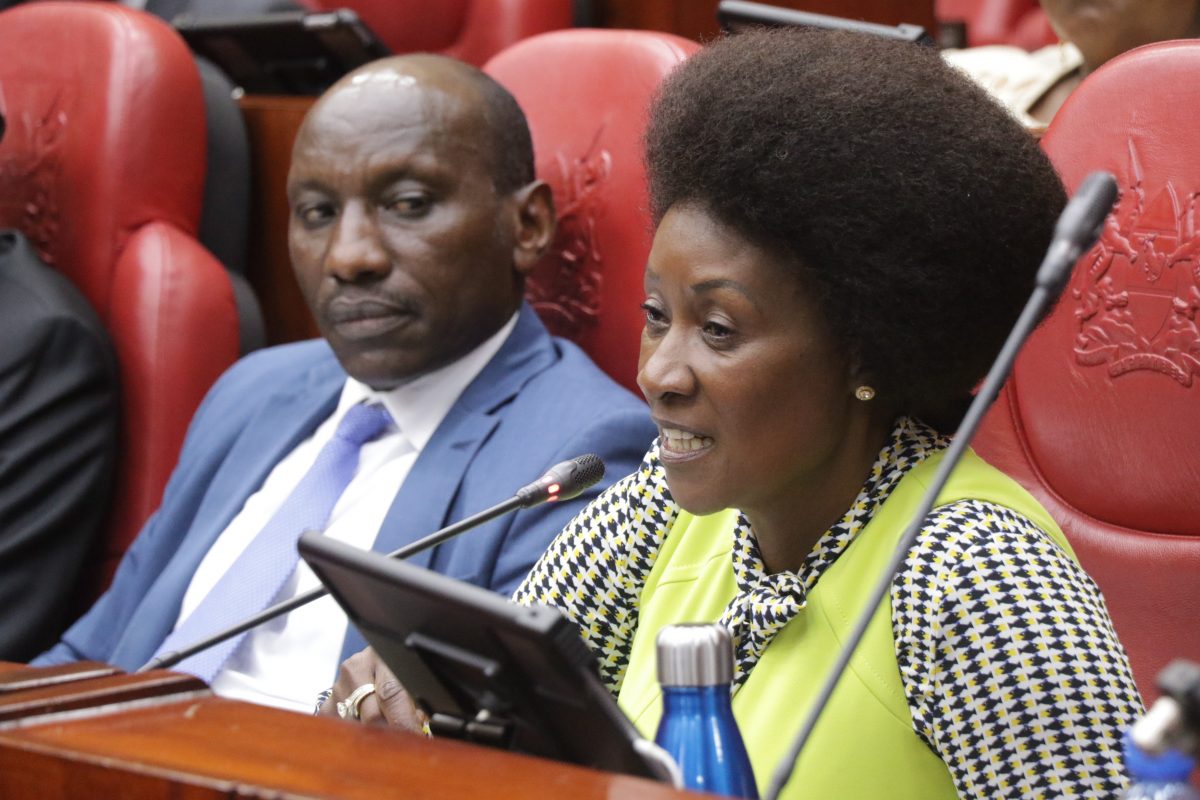Blow to private universities as TSC hints at stopping training

The four universities accredited to offer refresher courses to secondary school teachers are likely to suffer a big blow after the Teachers Service Commission (TSC) hinted at discontinuing the programme.
TSC chief executive Nancy Macharia told lawmakers it is considering abandoning the use of the universities to offer the short courses, known as Teacher Professional Development (TPD) training, and instead revert to the existing Teacher Training Colleges to run the programme.
She said the decision aims to address costs and other logistical challenges that it faced in the rolling out of the programme.
The universities currently offering the training are Mt Kenya, Kenyatta and Riara universities as well as the Kenya Education Management Institute.
“In view of the feedback from teachers and other stakeholders, the commission is in consultation with the Ministry of education to use the existing teacher training colleges as centres for capacity building and professional development programmes for teachers. This will address the issue of costs and other logistical challenges the commission has faced in rolling out the programme,” said Macharia.
While appearing before the implementation committee to give the status of TPD following the resolution of parliament to have the programme suspended, Macharia further explained that their decision also follows the high court decision to dismiss the case against the implementation of the training as well as the numerous feedback from teachers as well as stakeholders.
The contract awarded to the four universities is expected to come to an end in September yet TSC has not yet begun the implementation process.
Macharia’s sentiments will be music to teachers’ ears as they have raised concerns over the programme on grounds that it is too expensive for them. She added, “Members as I said this is just the start but we learnt our lesson, we now know better. We have accredited some institutions we will accommodate even more. I want to assure you that we have learnt and things will change in the second phase.”
Commission advertised
She however defended the private universities saying they were accredited to offer the said programme after they applied for the tender when the commission advertised for it
She said that it is unfortunate that some of the public universities did not tender for the said exercise and thus the commission’s hands were tied. “We did not lock out anyone from this tender, we advertised and institutions applied, I don’t know why some of these universities did not apply. It is regrettable that some of these institutions did not apply because it would have been very helpful to teachers as they would not have been forced to travel to get the training,” she said.
Macharia made the remarks on the day lawmakers demanded to know the criteria the commission used to accredit the four universities as well as the process it adopted to settle on the Sh 6000 that each teacher is supposed to pay annually to undergo the training.
First priority
The committee members took on the commission accusing it of overseeing an exercise that is biased, expensive and discriminatory.
They argued that public universities should have been given the first priority when it comes to offering the said courses as TSC is a public institution funded by the exchequer.
The Education committee of the twelfth parliament recommended the suspension of the training on grounds that teachers were not involved and consulted in coming up with the plan.
Committee chairperson and Budalangi MP Raphael Wanjala told TSC to explain whether public participation was undertaken before settling on the said programme.
Marakwet West MP Timothy Toroitich who also asked TSC to explain how it arrived at the figure of Sh 6,000 claimed that private universities selected to offer the said programme will rake in more than Sh one billion which should have been channelled to public universities.
According to the commission, teachers will be required to pay Sh6,000 every year for the training sessions, assessment, reporting and other associated costs that in the end will see a teacher paying Sh30,000 to complete one module in five years and Sh180,000 for the three decades six modules. “Out of simple calculations we have seen that all teachers will be required to pay about Sh 4.5billion and private universities will get more than Sh one billon from this yet this is money that should have been given to public universities,” he said.










